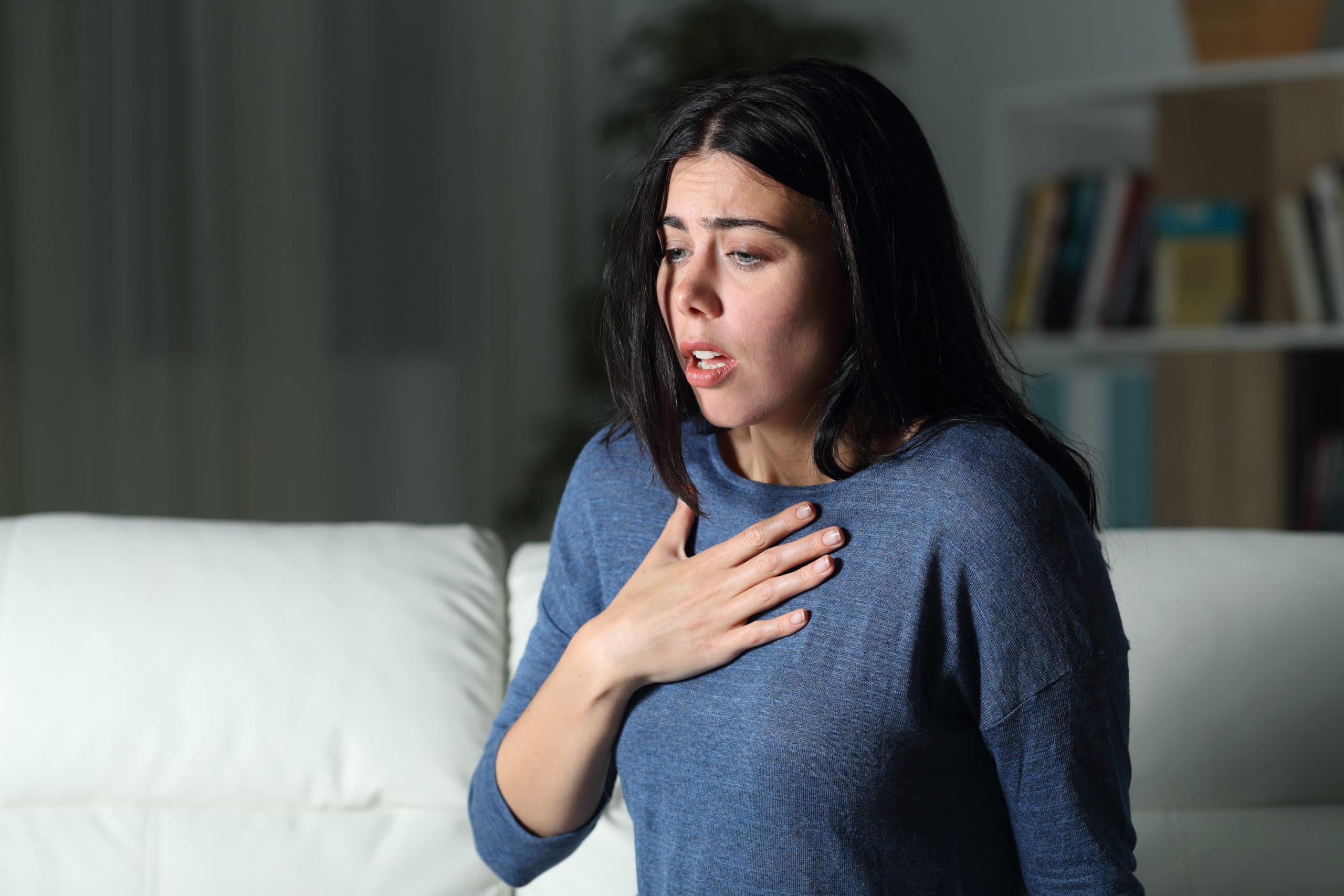If you or someone you know is suffering from both addiction and an anxiety disorder, it can help to understand more about anxiety. It also helps to learn how it relates to substance abuse. Lastly, it’s vital to know what type of anxiety and addiction treatment center is available in Los Angeles and how each anxiety program can help treat these disorders.
More than 40 million Americans suffer from some sort of anxiety disorder. In addition, 1 in 13 people worldwide suffers from anxiety. Therefore, anxiety remains the most common mental health issue in the world.
While millions and millions of people deal with anxiety every day, many people don’t know how to properly handle their condition. Many people let it take over their lives. Some even turn to drugs and alcohol to help cope with their anxiety. As a result, this can lead to addiction and anxiety, also known as a co-occurring disorder.
What is an Anxiety Disorder?
The term anxiety is a broad term. It covers several different mental health disorders of varying degrees. Furthermore, while many people suffer from anxiety, they are suffering from a specific type of anxiety disorder.
For instance, some common examples of a specific anxiety disorder include:
- General anxiety disorder
- Panic disorder
- Social anxiety
- Separation anxiety
- Agoraphobia
- Other specific phobias
There are many other mental health disorders that are similar to anxiety disorders but have different characteristics. However, these other disorders can occur along with anxiety disorders. Moreover, they are often associated with it.
Some examples of these conditions include:
- Obsessive-compulsive disorder
- Post-traumatic stress disorder (PTSD)
- Depression
While many people might feel fear, worry, or anxiety from time to time, it doesn’t mean they suffer from a disorder. In fact, people who suffer from anxiety disorders experience these feelings throughout their regular daily lives. In some cases, these feelings can be so severe that they can be challenging. Anxiety can also lead to addiction which may require a dual-diagnosis treatment center such as ours in Los Angeles, CA.
What are the Different Types of Anxiety Disorders?
Anxiety is a broad term to describe different types of conditions associated with it. We can treat all different types of anxiety at our dual diagnosis treatment center in Los Angeles if paired with an addiction. According to the Department of Health and Human Services, there are 5 major types of anxiety disorders.
They include:
- Generalized anxiety disorder
- Obsessive-compulsive disorder (OCD)
- Panic disorder
- Post-traumatic stress disorder (PTSD)
- Social phobia
Generalized Anxiety Disorder
Chronic anxiety, excessive worrying, and tension characterize general anxiety disorders. These symptoms can occur even when there is little or nothing to provoke them. This type of anxiety disorder is the most common, affecting 6.8 million adults in the United States (3.1%).
Obsessive-Compulsive Disorder (OCD)
Obsessive-compulsive disorder (OCD) is a type of anxiety disorder distinguished by repetitive behaviors, compulsions, and unwanted yet recurring thoughts. The unwanted thoughts are the obsessions. The repetitive behaviors are the compulsions.
Excessive hand washing, cleaning, checking on things, and counting, for instance, are indications of OCD. They are usually performed in a ritual-like state with hopes that these intrusive thoughts will go away, but they don’t, which increases anxiety. Treatment is the answer for proper management of the condition.
Panic Disorder
Panic disorders are a type of anxiety disorder identified by sudden repetitive episodes of intense fear and panic. These symptoms of fear and/or panic can result in chest pain, shortness of breath, rapid heart rate, dizziness, or abdominal distress.
Post-Traumatic Stress Disorder (PTSD)
Post-traumatic stress disorder (PTSD) is a type of anxiety disorder that commonly develops after an individual has experienced something traumatic. To add, it can occur when they have been exposed to a terrifying or stressful event. These include sexual assault, violence, natural disasters, accidents, or military combat.
PTSD tends to either happen directly to someone or has witnessed or experienced violence or physical harm of some kind. For example, war veterans and first responders, such as police, firefighters, EMTs, paramedics, and other military personnel are commonly diagnosed with PTSD.
Social Anxiety Disorder
Social Anxiety Disorder, also known as social phobia, is an overwhelming sense of anxiety and excessive self-consciousness. People feel this most when placed in everyday social situations. The social phobias can be limited to just 1 situation or it may be various, where a person experiences symptoms almost anytime they are around others.
What are the Symptoms of Anxiety?
Distinguishing between general anxiety and an anxiety disorder can go a long way when it comes to getting treatment. There are usually symptoms that can indicate anxiety. At this point, looking into treatment options can be very helpful.
Some of the common signs and symptoms of an anxiety disorder include:
- Panic
- Fear
- Feelings of constant danger
- Not being able to stay calm or sit still
- Trouble sleeping
- Hyperventilating
- Shortness of breath
- Dizziness
- Heart palpitations
- Cold, sweaty, numb, or tingling sensation in the hands or feet
- Avoiding certain objects or places due to fear
- Not being able to focus or concentrate
- Nausea
- Dry mouth
The Connection Between Anxiety and Addiction
For many people, anxiety disorder and substance abuse go hand in hand. For some, they struggle to deal with their anxiety disorder. Consequently, to cope, they can turn to drugs and alcohol. While this may seem like a great temporary solution, it can have long-term effects such as health problems or life-long addiction.
On the other hand, some people might find themselves developing an anxiety disorder as a result of their addiction. For instance, when someone is addicted to drugs or alcohol it can cause a chemical imbalance of the brain. Thus, this can lead to the development of an anxiety disorder, especially if the imbalance occurs in the area of the brain that controls fear and emotion.
When a mental health disorder such as anxiety occurs with addiction, it is called a dual-diagnosis disorder. Hence, it often requires the individual to attend a dual diagnosis treatment center that also specializes in treating anxiety such as LA Detox in Los Angeles. While researchers have not been able to directly pinpoint what exactly causes anxiety disorder, there are some causes and risk factors that lead to an increase in the chances that one may develop.
Causes of Anxiety and Addiction
- Genetics- Someone is more likely to develop an anxiety disorder if it runs in their family.
- Brain chemistry- Some researchers believe a chemical imbalance in the brain can be linked to anxiety disorders, specifically the parts of the brain that control fear and emotion.
- Environmental stress- This can be brought on by stressful events you have seen or lived through including childhood abuse and neglect, the death of a loved one, or being attacked or seeing violence.
- Drug withdrawal or misuse- Some people turn to drugs or alcohol to deal with their anxiety. While this might be a temporary solution, in the long run, it can cause more problems.
- Medical conditions- Certain conditions, such as heart, lung, and thyroid conditions, can cause symptoms similar to anxiety disorders or make anxiety symptoms worse.
Risk Factors
- Substance abuse- Substance abuse and anxiety disorder tend to go hand in hand. Many people turn to drugs or alcohol to deal with their anxiety, which can lead to addiction. On the other hand, substance abuse can lead to the development of an anxiety disorder.
- Low self-esteem- Maintaining a negative viewpoint about yourself can lead to extreme anxiety, especially in certain social settings.
- History of mental health issues- Having another type of mental health disorder can increase the chances of an anxiety disorder also developing.
- Trauma- Experiencing a traumatic event, either directly or indirectly, can increase the chances of the person developing post-traumatic stress disorder.
- Sexual abuse- Sexual abuse, especially during a person’s younger years, has shown to have a direct correlation to the development of an anxiety disorder later in life.
- Poor health- Someone who is in poor health or suffers from a chronic health condition is more likely to develop an anxiety disorder since they are constantly worrying about their health and well-being.
Treatment Center and Program Options For Anxiety and Addiction in Los Angeles, California
When dealing with co-occurring disorders, such as anxiety disorder and addiction, 1 of the most popular treatment methods is cognitive-behavioral therapy (CBT). A great place to get this treatment is at a center such as LA Detox in Los Angeles for understanding and treating both. First and foremost, CBT teaches those who are suffering from both anxiety disorder and addiction how to be more mindful.
In fact, they learn how to turn negative thoughts and behaviors into positive ones. It also gets to the bottom of what exactly brought on the addiction and the anxiety disorder. Next, it teaches the person healthier ways to live their lives without turning to drugs or alcohol to cope.
Dealing with Anxiety in Addiction Recovery
Anxiety is a common problem for people recovering from addiction. What’s more, anxiety is an issue even for many people in recovery, even if they aren’t diagnosed with an anxiety disorder. Studies suggest that as much as 20% of people with substance use disorders also live with an anxiety disorder.
In many cases, the anxiety issues come before the substance abuse disorder. In fact, substance abuse starts out as a means of self-medication. For this reason, a lasting anxiety and addiction recovery depend on a treatment program that can address co-occurring issues. Lastly, practicing healthy ways of coping with anxiety is essential to living your best life.
Contact Our Addiction and Anxiety Treatment Center in Los Angeles, CA
Millions of people suffer from anxiety and addiction. Many people turn to drugs or alcohol to address their anxiety. This can lead to substance abuse and addiction. At LA Detox, we want you and your loved ones to live a happy and healthy life, which is why we pride ourselves on being an anxiety and addiction treatment center in Los Angeles. Contact us today to learn about our treatment program for both anxiety disorder and addiction.


